This 16-year-old can rake in S$30,000 a month reselling sneakers
Amazed at the resale value of limited edition sneakers, Remus Er turned his hobby of collecting them into a profitable business - while balancing the demands of school and tuition.
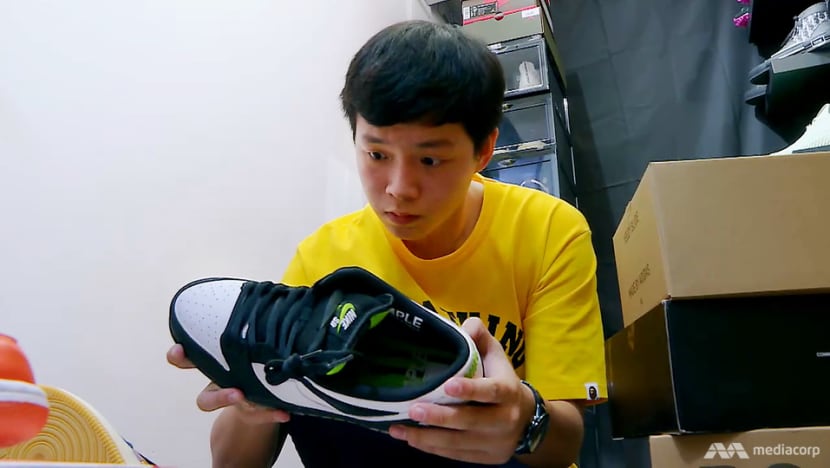
Remus Er, 16, trades in limited edition sneakers prized by collectors, by buying them upon release and re-selling for a 30- to 300-per-cent profit margin.
SINGAPORE: He may be mugging for his O-level examinations this month, but one enterprising Singaporean teen is already earning more than what some businessmen make – with his lucrative trade in collectable sneakers.
Outside school hours, Remus Er snags limited edition sneakers such as Nike Air Jordans and Adidas Yeezys, and then flips them for sometimes as much as a 300 per cent profit margin.
In good months, he can rake in some S$20,000 to S$30,000 in sales, half of which is profit, estimated the resourceful Geylang Methodist School student.
“My seven days a week is jam-packed – starting with school in the morning, tuition in the afternoon and revision before dinner, then moving on to whatever I need to complete for my business,” said the 16-year-old.
Remus markets and sells these sneakers on his website, through online marketplace Carousell and group chats WhatsApp and Telegram.
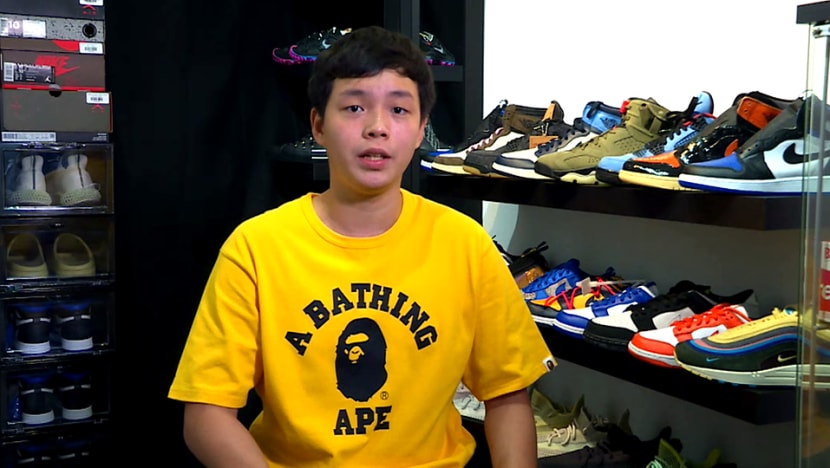
He even has three employees working for him, updating his Hypemaster website and social media accounts, and communicating with buyers from New Zealand, Europe and the United States.
SNEAKERS ARE AN ASSET CLASS
Labelled as “an emerging alternative asset class” by investment bank Cowen & Co, the global sneaker resale market was valued at about US$2 billion (S$2.7b) last year and is projected to triple to a staggering US$6 billion by 2025.
What’s driving this multi-billion dollar industry is the growth of digital platforms, millennial demand and those who regard these sneakers as investment assets.
Even popular sneaker resale website StockX operates with the look and feel of an online stock trading platform – it shows the last price done for the sneakers, the 52-week high and low prices, and even the price volatility.
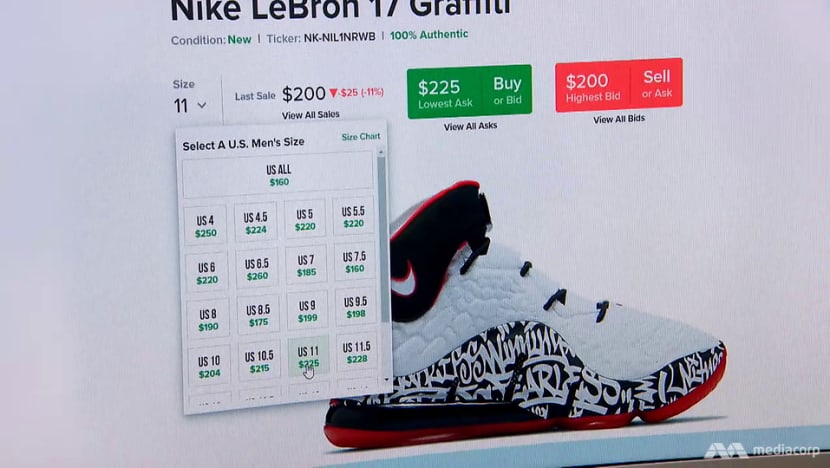
For Remus, his lightbulb moment was after he had snagged a pair of Nike Vapormax 2018 at an online raffle conducted by the Off-White store in Singapore two years ago.
He wore them to a sneaker event with his friends a few months later. “They approached me, telling me these sneakers on my feet were worth S$1,200 on the resale market,” said Remus. “I was amazed… I didn’t know they were worth so much.”
At that event, he also came across a Sega arcade game called Key Master which awards prizes – in this case Yeezy shoes – to those who can fit a key into a lock using a mechanical arm.
It costs S$2 a try, and Remus was hooked; he spent S$1,000 over two days on the game, and won five pairs of Yeezy shoes.
“I managed to make $2,500 (re-selling them). That was the start of the resale business,” he said.
WATCH: How Remus does it (3:28)
WAKING UP AT 4AM TO BUY SNEAKERS
Intrigued by the Key Master machines, this sneakerhead asked his father to register a company on his behalf, and he went on to buy two machines which were placed in two Orchard Road shops.
He now operates four of them, plus one claw machine and one Cut the Rope machine.
While Sam Er was open to the idea of his young son running a business, Remus’s mother was concerned.
“She kept asking me how was he going to take care of the business and his studies? I said that since he has the interest, it’s good to let him try to see how things work out,” said Er, who is in the marine services industry.
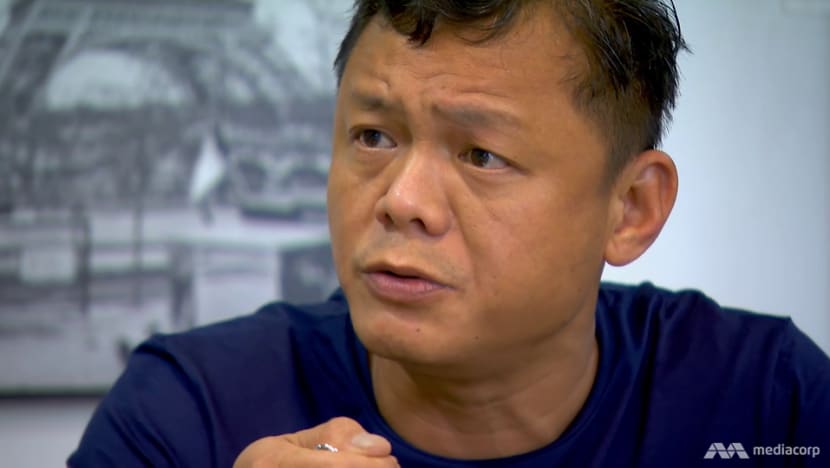
Remus also started buying and reselling sneakers, waking up at 4am to head down to the shops at Orchard Road when there were new launches. He’d queue for five to six hours to buy the limited editions.
At first, he wondered why his shoes were selling so well – then he realised he was selling them at below the market value. “I was a complete newbie,” he confessed.
Friends introduced him to StockX, which allowed him to check and price his shoes accordingly.
After building his client base, Remus decided to create his own website to cut down on the commission that was paid to online marketplace platforms. He now has clients from India, Europe and the United States, and is able to ship the shoes directly to them.
Deciding to scale up his operation “to maximise my profits”, he paid friends to queue with him during sneaker releases to get more of the limited edition pieces. He also employed three staff.
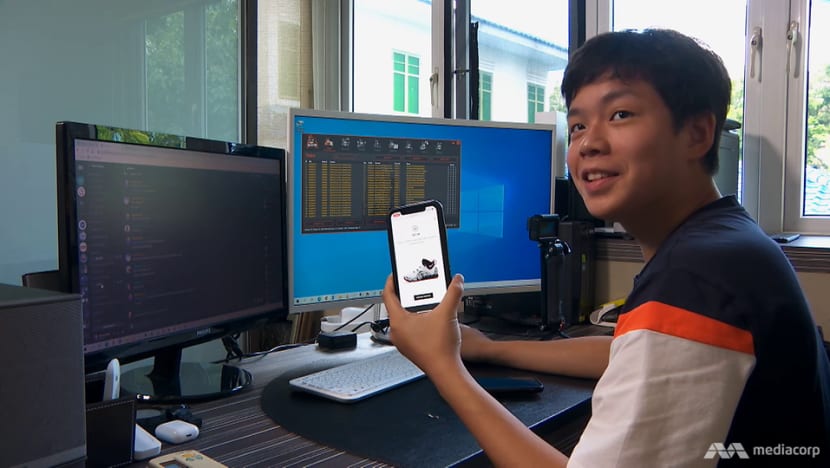
LEGIT VERSUS COUNTERFEIT
Running the business came with a sharp learning curve – he had to learn how to secure sneakers before their release date, and to spot the differences between authentic and counterfeit.
He bought fake ones and compared them to the real deal so as to learn. “Usually with each pair, I will spend two to five minutes ensuring that the shoe is legit. Then I’ll photograph the shoes and post them on my website,” he said.
He said his profit margin varies from sneaker to sneaker. “It can be as low as 30 per cent, or as high as 300 per cent, depending on how long we hold the sneaker for and how limited the sneaker is,” he said.
For example, he bought a pair of Nike Airforce 1 2020 Puerto Rico for S$400 and resold it for S$900.
“It’s a cancelled pair by Nike as they actually printed the flag of Puerto Rico on the wrong side of the tongue of the shoe,” he said.
The most expensive pair of sneakers he sold was a pair of Air Dior for S$8,000, which he’d bought for S$3,300.
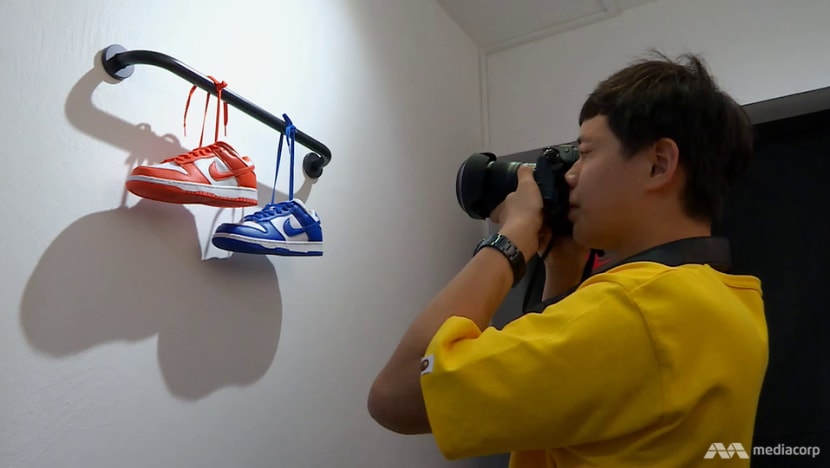
During Singapore’s pandemic circuit breaker, sales dipped. But like a savvy businessman, Remus ramped up marketing campaigns online and hosted giveaways on Instagram.
This has resulted in an increase in followers, sales and brand awareness, he said.
Because of the COVID-19 outbreak, sneaker releases were also moved online. Remus found himself up against hundreds of other resellers gunning for the shoes. Some were using automated bots to speed through the buying process.
So he and his team spent about S$8,000 on seven bots to improve their chances.
“I’ve actually recouped all the cost of my bots. I rent out these bots when I’m not using them,” he added.
‘CHASE AFTER THE RAINBOW’
He said he puts 75 per cent of what he earns back into the business, spending the rest on food, meals with his friends, and on his own personal sneaker collection. He has 20 pairs, and said he will not spend more than S$1,000 on a pair.
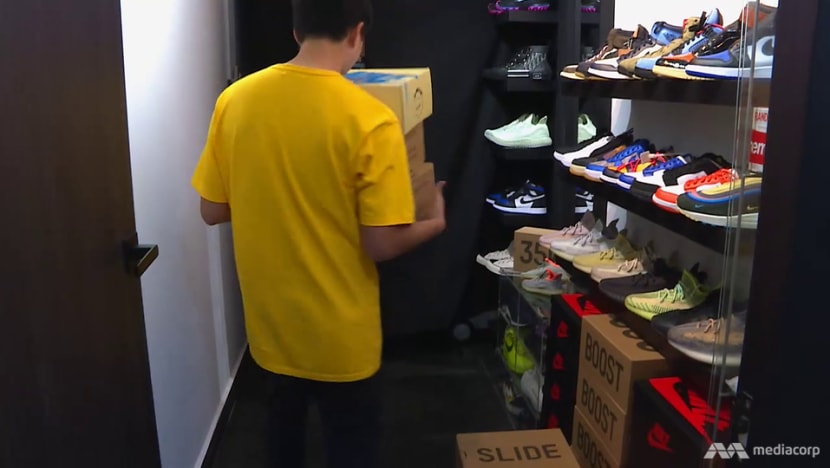
While the money is good, his busy schedule means he has had to sometimes sacrifice sleep and hanging out with friends.
On a weekday, school and tuition take up most of his time, and he can only concentrate on his business after 5pm. “I’ll be updating the products (on my website), checking the sales numbers, and shipping my products to customers,” he said.
But, he says, he “hardly” gets stressed out by this balancing act. “I find this more of a passion and a driving force to push me to challenge myself.”
Remus’ dad hopes he will complete his tertiary education – and while the teenager seems to be coping well so far, “only the O-level results will show if he’s doing okay”, said Er.
“At 16, we hope that he can prioritise his studies. But on the other hand, since he has a keen interest in business, we don’t want to cap him. We would like him to chase after the rainbow,” he said.
















